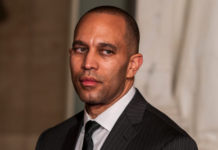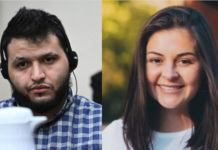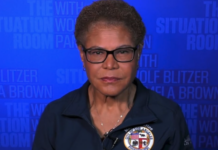There has been some recent controversy surrounding the Seattle comedy club Capitol Hill Comedy/Bar, where several comedians have claimed that their scheduled shows were canceled due to community backlash. Four stand-up comedians – Dave Smith, Luis J. Gomez, Jim Florentine, and Kurt Metzger – were all slated to perform at the club at some point in the upcoming year, but received an email from the club co-owner and booker Jes Anderson informing them that their shows had been canceled.
According to the email, this decision came after “discussions with our team, investors, local comedians, and neighborhood advocacy groups.” The club, which is located in Seattle’s Capitol Hill neighborhood, apparently received significant feedback expressing concerns about the alignment of these upcoming shows with the neighborhood’s values. They also claimed that these concerns came from “local advocacy groups” who are deeply embedded in the community and work towards upholding its values.
Four comedians canceled from Seattle comedy club after complaints from local progressives: Report (Progressives can’t take a joke)
Dave Smith, Luis J. Gomez, Jim Florentine, and Kurt Metzger were canceled by the Capitol Hill Comedy Bar in Seattle,WA https://t.co/2dClbBDPRt
— Mark Dosd 🇺🇸 (@MGDosd) February 27, 2024
It’s interesting to note that the comedy club is located in the former Capitol Hill Autonomous Zone (CHAZ), where radical activists took over six city blocks during the Black Lives Matter riots last year. This has led some to believe that the cancelations may have been a response to potential protests or disruptions caused by these activist groups.
However, Anderson maintains that the cancelations were simply a decision “to avoid any potential negative impact on both our club and the artists involved, as well as to maintain the harmony within our community.”
While one of the comedians, Luis J. Gomez, took the news in stride and joked about the decision in a recent podcast, others were not as amused. Comedian Kurt Metzger took to social media to mock the decision, pointing out the irony of the club being located in the “CHAZ” district, and comedian Toby Turner criticized the decision, saying that the community had already bought tickets and that the people sabotaging the shows weren’t representative of the community.
On the other hand, there were some local comedians and show producers who came to the club’s defense, saying that they supported the decision to cancel the shows to prioritize the safety and inclusiveness of the community. This raises an important question – where do we draw the line between protecting the community and stifling diversity of perspectives?
This decision was based on appeasing a certain group of activists who claim to speak for the entire community. But what about those who were looking forward to the shows and were not offended by the comedians’ material? Should their voices not be taken into consideration as well?
And what message does this send to comedians who may have more right-wing or unconventional views, or who simply tread into more controversial territory? Do they now have to think twice before performing in notoriously “progressive” areas like Capitol Hill?
Ultimately, it seems that the cancelations were less about the content of the comedians’ sets and more about appeasing a vocal minority. And by giving in to their demands, the club has opened the door for even more activism and pressure in the future.
It’s a slippery slope, and it remains to be seen if this decision will have a positive or negative impact on the club’s business. But one thing is for sure – it has certainly sparked a heated debate about the power of activism and the limits of free speech in the world of comedy.







